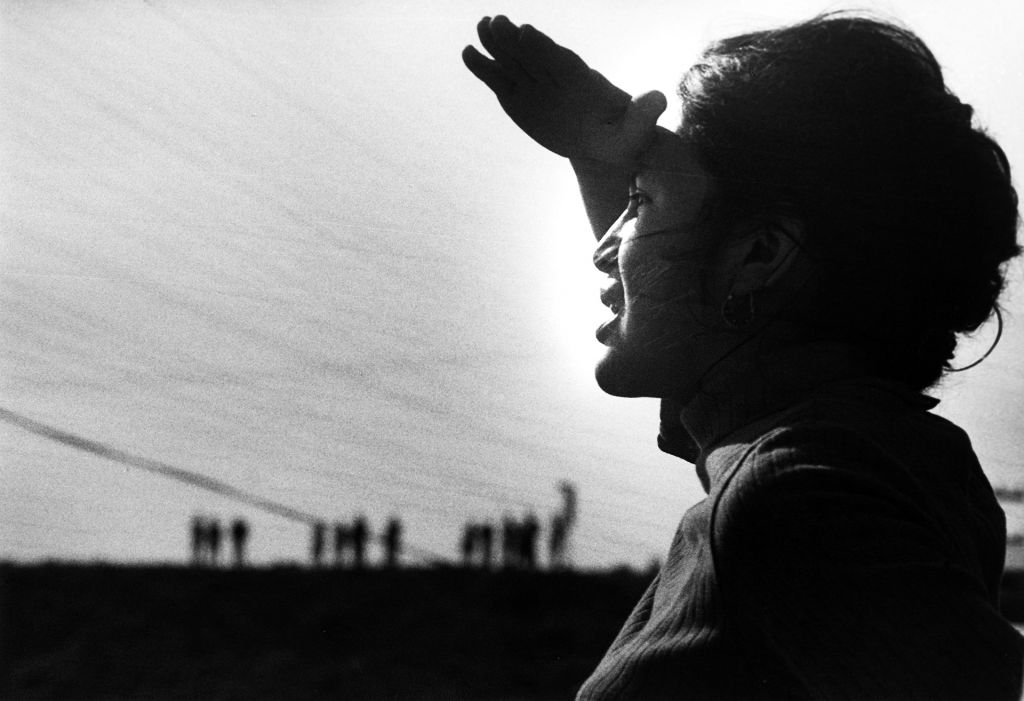
Filmmaker Peter Bratt‘s first feature Follow Me Home, a San Francisco International Film Festival Audience Award winner, was produced with his brother Benjamin Bratt, which they followed with the heartfelt indie film La Mission, shot on location in their hometown of San Francisco, “an honest attempt to portray the destructiveness of violence in the Latino community.”
This powerful survey of an underappreciated figure in the labor and Latino rights movements is “a fascinating corrective to 50-plus years of American history,” writes Lora Grady in the Washington Post. “It’s educational, to be sure, but also exhilarating, inspiring and deeply emotional.” Adds David Hughes in Empire magazine, “It’s powerful, provocative filmmaking that could potentially inspire a new generation of Dolores Huertas.”
Bratt, a San Francisco Film Commissioner and a longtime consultant for the Friendship House Association of American Indians, stopped by to talk about how he became hooked on Huerta’s story and how he earned the trust of both Dolores and her family.
Why did you make this film?
It was Carlos Santana’s idea. He wanted the world to know about her work, and so he reached out to me, expressing that he wanted to collaborate. As an indigenous person, I’ve always been drawn to the idea of who controls our collective narrative and which stories get told. After a year of research, it became apparent that Dolores had been purposefully left out of the history books – and I was hooked. Getting her story out to the world felt like a calling.
What were some of the biggest challenges you faced in making this film?
Coming from a narrative feature film background, it took much more time to find the story and themes. After about a year and a half of interviews and combing through hundreds of hours of archives, a light went on, and suddenly the narrative structure emerged. It was literally like a lightning strike. But up until then, I was sweating bullets.
The other big challenge was that Dolores—like most activists— resisted the story being about her. I think she envisioned more of an “organizing 101.” I don’t think she understood, that the organizing would be transmitted through her personal story.
How did you gain the trust of the subjects in your film?
The trust came with time.
Understandably Dolores and her family were a bit guarded about sharing their personal stories and souls to a group of strangers camped out in their living room. But after interviewing them, breaking bread with them, and sometimes crying with them, the trust began to grow. After the second year, we—the entire crew—were adopted as part of the family.
What would you have liked to include in your film that didn’t make the cut?
Dolores started advocating for LGBTQ rights nearly five decades ago, and even helped get Harvey Milk elected to the SF Board of Supes. Because of the fierce homophobia in Latino communities, this was a radical thing for a Latina to do back then.
But her work with Harvey was only the tip of the iceberg, and her work for LGBTQ rights continues to this day. So yes—that’s my biggest disappointment as a filmmaker—that we weren’t able to include that important aspect of her work.
Do you have a scene in your film that is especially a favorite or made the most impact on you?
I love the part of about Dolores’ relationship with Robert F. Kennedy as well as the birth of “brown pride.” Our editor and my co-writer, Jessica Congdon, did something magical in those two sections. I never tire of watching them. All the elements of filmmaking seem to be hitting on all six, working in beautiful harmony.
What are your three favorite/most influential documentaries or feature films?
I have favorite scenes more than whole films. Some of the most powerful scenes though appear in Spring, Summer, Fall, Winter…and Spring (Korean feature), Born into Brothels (feature doc), Little Big Man (feature).

